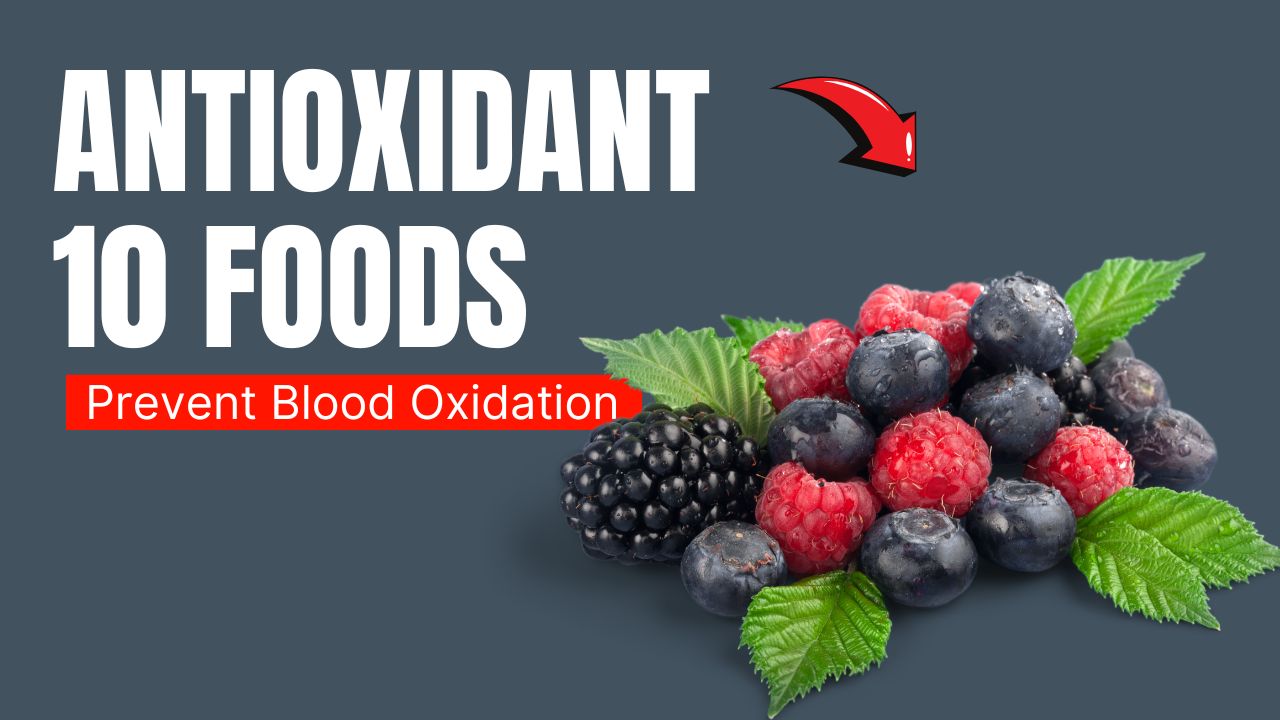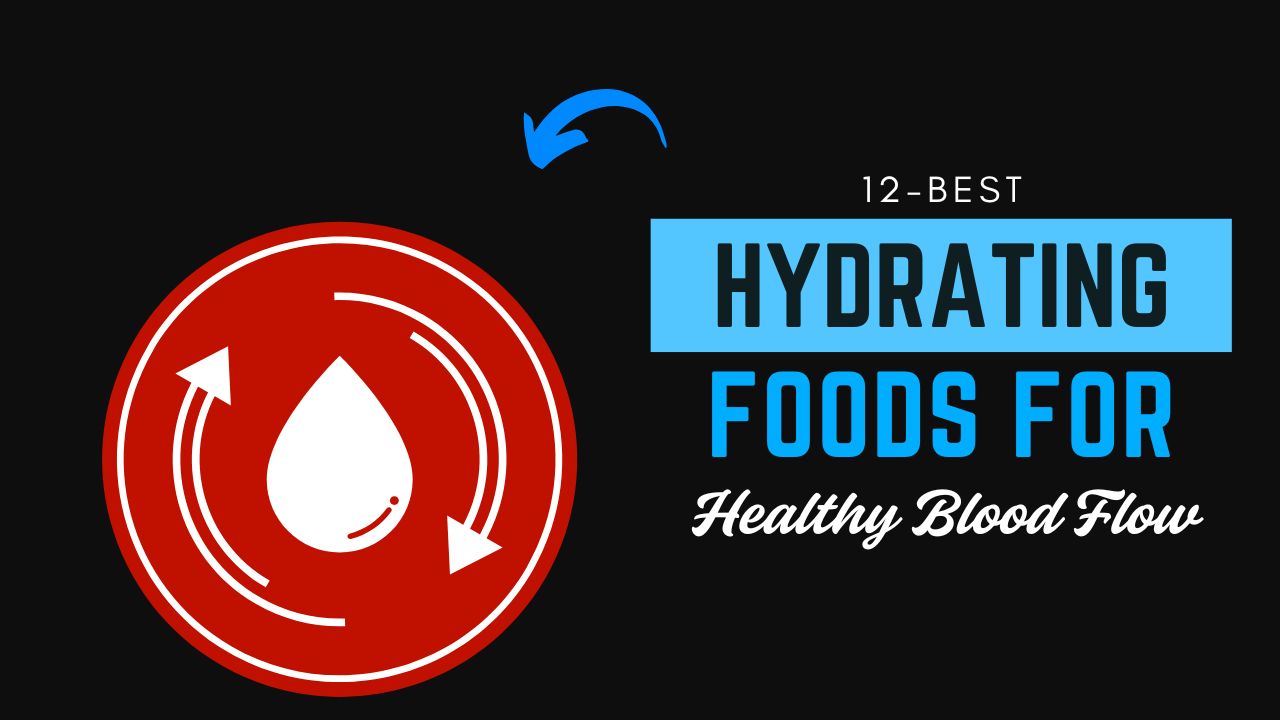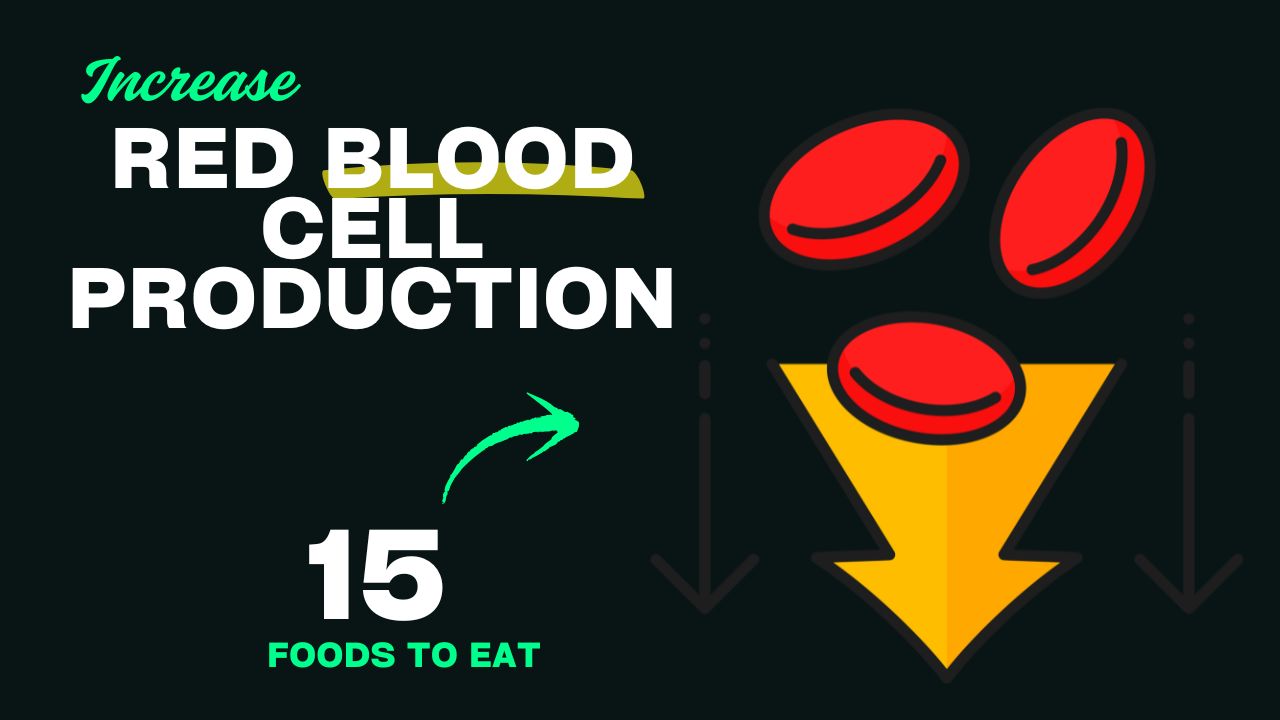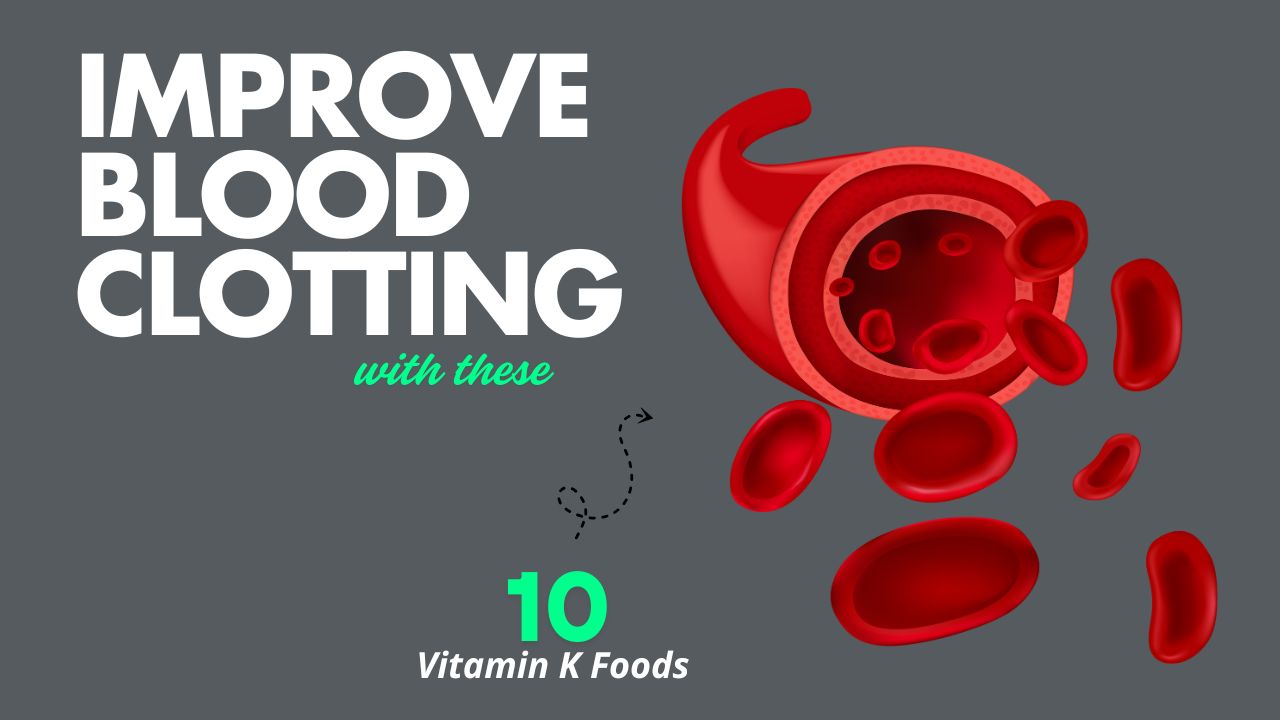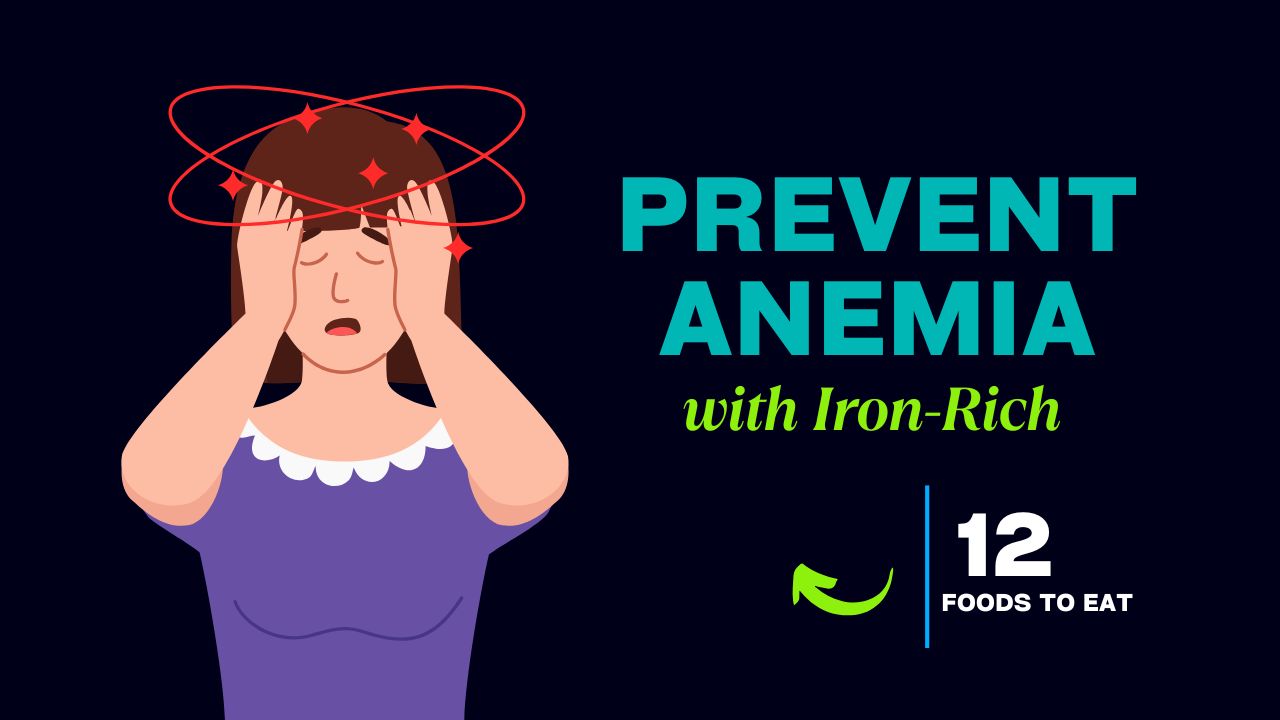Struggling with constant fatigue, unexplained weight gain, or brain fog? You might be surprised to learn that your adrenal glands—two tiny glands sitting right above your kidneys—could be the hidden culprit.
These glands are responsible for producing hormones like cortisol, adrenaline, and aldosterone, which regulate stress response, metabolism, and energy balance. When your adrenals are overworked or undernourished, your entire body feels the strain.
Here’s the good news: nature has provided a variety of herbal foods that can naturally support adrenal function, reduce stress, and restore balance.
From roots and leaves to seeds and berries, these powerful herbs and plant-based foods have been used in traditional medicine for centuries to strengthen resilience against stress and boost energy levels.
In this article, you’ll discover:
- 10 herbal foods that support adrenal health
- The best ways to eat or use them
- Who should eat or avoid them
- Storage and buying tips for freshness
- Do’s & don’ts for safe consumption
- Possible side effects to watch for
Whether you’re battling fatigue, dealing with chronic stress, or simply want to keep your hormones balanced, adding these foods to your diet could be a game-changer.
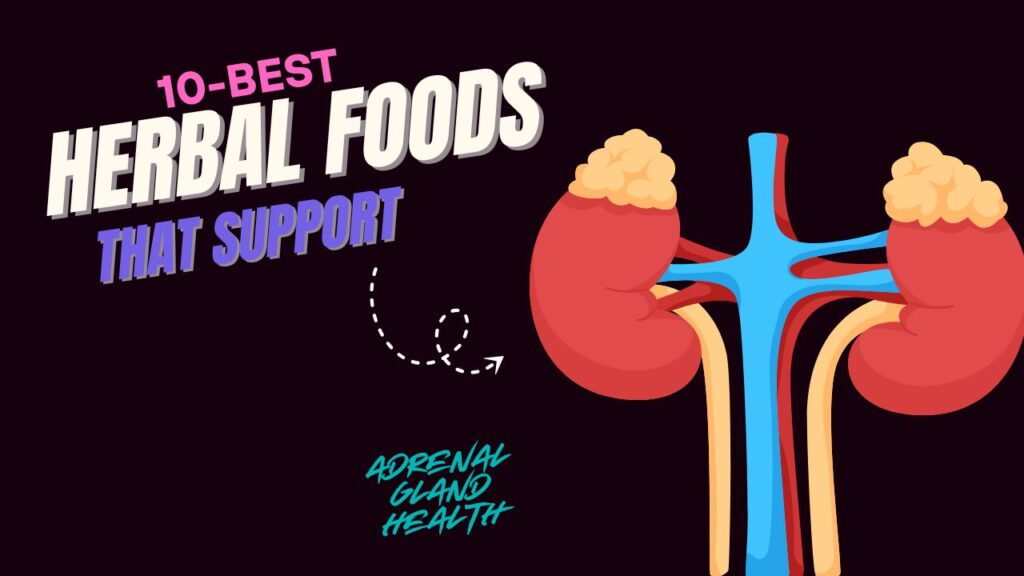
Table of Contents
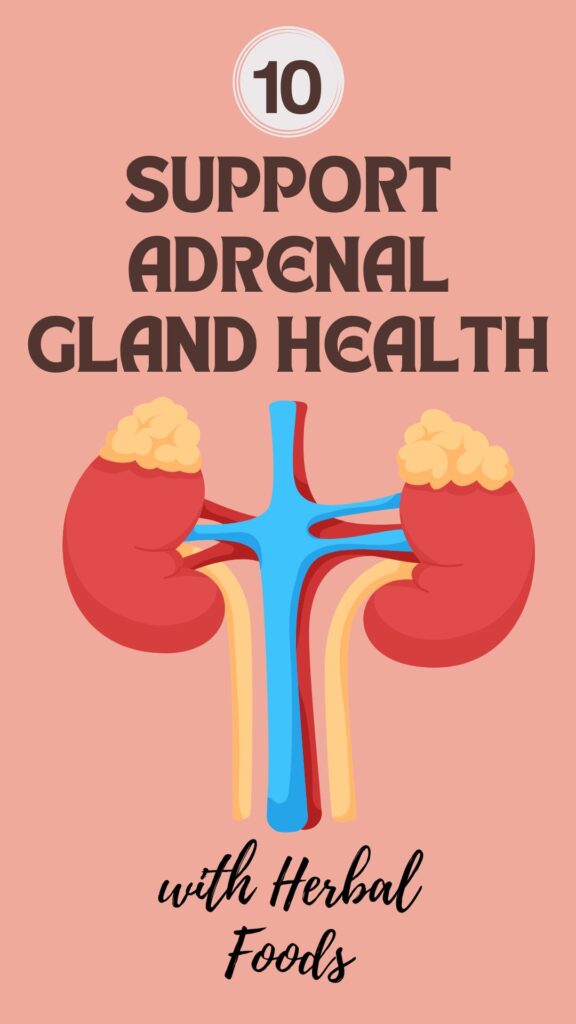
10 Best Herbal Foods Best For Adrenal Gland Health
1. Ashwagandha (Withania somnifera)
Why it helps:
Ashwagandha is one of the most powerful adaptogens, meaning it helps your body adapt to stress and reduces excessive cortisol production. Studies show it can improve sleep quality, lower anxiety, and restore energy.
Best Ways to Eat or Use It
- Add ashwagandha powder to warm milk or smoothies.
- Brew as an herbal tea with honey.
- Take in capsule form if recommended.
Who Should Eat / Avoid
- Good for: stressed professionals, students, people with low energy.
- Avoid if: pregnant or breastfeeding, or if you have thyroid issues without consulting a doctor.
Storage & Buying Tips
- Buy from trusted herbal brands.
- Store powder in airtight containers away from heat.
Do’s & Don’ts
✅ Do: Take small amounts consistently.
❌ Don’t: Combine with heavy sedatives without advice.
Possible Side Effects
- May cause mild stomach upset in large doses.
- Can interact with thyroid medication.
2. Licorice Root
Why it helps:
Licorice root contains compounds that help balance cortisol and support adrenal recovery, especially in cases of adrenal fatigue.
Best Ways to Eat or Use It
- Brew into tea.
- Use licorice root extract drops in water.
Who Should Eat / Avoid
- Good for: individuals with low cortisol levels, chronic fatigue.
- Avoid if: you have high blood pressure or kidney disease.
Storage & Buying Tips
- Choose dried root sticks or organic powders.
- Store in sealed jars to keep flavor strong.
Do’s & Don’ts
✅ Do: Use in moderation.
❌ Don’t: Consume daily for months without medical guidance.
Possible Side Effects
- Can raise blood pressure with overuse.
3. Holy Basil (Tulsi)
Why it helps:
Holy Basil is revered in Ayurveda for calming the mind and supporting adrenal balance. It helps regulate cortisol and improves immune strength.
Best Ways to Eat or Use It
- Brew fresh or dried leaves into tea.
- Add leaves to soups and stews.
Who Should Eat / Avoid
- Good for: people with stress-induced anxiety or insomnia.
- Avoid if: you are on blood-thinning medications.
Storage & Buying Tips
- Use fresh leaves within 3–4 days.
- Store dried leaves in a cool, dark place.
Do’s & Don’ts
✅ Do: Drink tulsi tea daily.
❌ Don’t: Overconsume as it may thin blood.
Possible Side Effects
- Rare, but may interfere with blood clotting.
4. Maca Root
Why it helps:
Maca is a Peruvian root known for balancing hormones, enhancing stamina, and supporting adrenal recovery after stress.
Best Ways to Eat or Use It
- Blend maca powder into smoothies.
- Mix into oatmeal or energy bars.
Who Should Eat / Avoid
- Good for: athletes, those with chronic stress, menopausal women.
- Avoid if: you have thyroid problems.
Storage & Buying Tips
- Choose gelatinized maca powder for easier digestion.
- Store in a dry, cool pantry.
Do’s & Don’ts
✅ Do: Start with 1 teaspoon daily.
❌ Don’t: Take late in the evening (it may boost energy too much).
Possible Side Effects
- May cause insomnia if consumed late.
5. Rhodiola Rosea
Why it helps:
Rhodiola reduces stress-related fatigue and improves mental clarity. It supports balanced cortisol levels and endurance.
Best Ways to Eat or Use It
- Take in capsule form.
- Brew as a tea (mildly bitter).
Who Should Eat / Avoid
- Good for: students, busy professionals, athletes.
- Avoid if: you have bipolar disorder.
Storage & Buying Tips
- Store in airtight bottles.
- Buy from standardized supplement brands.
Do’s & Don’ts
✅ Do: Use during stressful periods.
❌ Don’t: Mix with strong stimulants.
Possible Side Effects
- Can cause jitteriness in high doses.
6. Ginseng (Panax ginseng)
Why it helps:
Ginseng is famous for improving energy, reducing stress, and enhancing resilience against adrenal fatigue.
Best Ways to Eat or Use It
- Drink as ginseng tea.
- Take as capsules or tinctures.
Who Should Eat / Avoid
- Good for: people with chronic fatigue, athletes.
- Avoid if: you have heart issues or insomnia.
Storage & Buying Tips
- Store dried roots in a cool, dark place.
- Capsules should be sealed tightly.
Do’s & Don’ts
✅ Do: Use short-term for energy boosts.
❌ Don’t: Take before bedtime.
Possible Side Effects
- May cause insomnia or rapid heartbeat.
7. Astragalus Root
Why it helps:
Traditionally used in Chinese medicine, Astragalus strengthens immunity and supports adrenal recovery.
Best Ways to Eat or Use It
- Add slices to soups and broths.
- Use as a tea.
Who Should Eat / Avoid
- Good for: people recovering from illness or stress.
- Avoid if: you have autoimmune conditions.
Storage & Buying Tips
- Keep dried slices in glass jars.
- Use within 6–12 months.
Do’s & Don’ts
✅ Do: Add to soups for slow infusion.
❌ Don’t: Use daily without breaks.
Possible Side Effects
- Rare but may cause dizziness.
8. Schisandra Berries
Why it helps:
Known as the “five-flavor fruit,” Schisandra berries enhance stress resilience, liver detox, and adrenal balance.
Best Ways to Eat or Use It
- Brew dried berries into tea.
- Add powder to smoothies.
Who Should Eat / Avoid
- Good for: stress, low energy, liver support.
- Avoid if: pregnant or breastfeeding.
Storage & Buying Tips
- Store dried berries in airtight bags.
- Keep in a cool place to prevent spoilage.
Do’s & Don’ts
✅ Do: Mix with other adaptogen teas.
❌ Don’t: Consume in excess—it’s very potent.
Possible Side Effects
- Can cause heartburn in some people.
9. Ginger
Why it helps:
While commonly known for digestion, ginger also reduces inflammation and helps regulate adrenal stress response.
Best Ways to Eat or Use It
- Add fresh ginger to teas, stir-fries, or juices.
- Use ginger powder in soups or baked goods.
Who Should Eat / Avoid
- Good for: people with stress-related digestive issues.
- Avoid if: you are on blood thinners.
Storage & Buying Tips
- Store fresh ginger in the fridge.
- Freeze peeled chunks for long-term use.
Do’s & Don’ts
✅ Do: Use fresh for maximum potency.
❌ Don’t: Overuse powdered ginger daily.
Possible Side Effects
- Excessive use may cause stomach irritation.
10. Reishi Mushroom
Why it helps:
Reishi is considered the “mushroom of immortality” in traditional medicine. It reduces stress, improves sleep, and supports adrenal balance.
Best Ways to Eat or Use It
- Brew dried slices into tea.
- Take reishi extract capsules.
Who Should Eat / Avoid
- Good for: people with sleep issues, chronic fatigue.
- Avoid if: you are on immune-suppressing drugs.
Storage & Buying Tips
- Keep dried mushrooms in airtight containers.
- Use extracts for convenience.
Do’s & Don’ts
✅ Do: Take before bed for relaxation.
❌ Don’t: Expect immediate results—it works gradually.
Possible Side Effects
- May cause dry mouth or dizziness in some individuals.
Conclusion
Your adrenal glands play a critical role in how well your body responds to stress, manages energy, and maintains hormonal balance. When overworked, they can leave you feeling exhausted, anxious, or mentally drained.
The herbal foods listed above—ashwagandha, licorice root, holy basil, maca, rhodiola, ginseng, astragalus, schisandra berries, ginger, and reishi mushrooms—offer natural ways to nourish and restore adrenal function.
By incorporating these herbs into teas, soups, smoothies, or daily meals, you can support your body’s stress response, improve vitality, and protect long-term health.
Start small: pick one or two herbs from this list and try adding them to your diet this week. Over time, these natural foods can make a noticeable difference in your energy, mood, and resilience.
Which of these adrenal-supporting foods have you tried? Share your favorite recipe or preparation method in the comments below!
Frequently Asked Questions (FAQs)
What are adrenal glands and why are they important?
The adrenal glands are small glands located above your kidneys. They produce essential hormones like cortisol, adrenaline, and aldosterone, which regulate stress, metabolism, blood pressure, and energy levels.
How do herbal foods help adrenal health?
Herbal foods, especially adaptogens, help the body manage stress, regulate cortisol, and support overall hormone balance. They work gently and naturally to restore energy and resilience.
Can these herbal foods cure adrenal fatigue?
While these foods can support adrenal health, they are not a “cure.” They work best as part of a healthy lifestyle that includes proper sleep, balanced nutrition, and stress management. Always consult a healthcare provider if you suspect adrenal dysfunction.
How long does it take to see results from these herbs?
Results vary depending on the herb and the individual. Some, like ginger or holy basil, may provide benefits within days, while adaptogens like ashwagandha or reishi mushrooms may take a few weeks of consistent use.
Can I take multiple adrenal-supporting herbs together?
Yes, many adaptogens complement each other. For example, ashwagandha and holy basil are often combined. However, it’s best to start with one or two herbs to see how your body responds before combining several.
Are there risks of side effects from these herbs?
Most are safe when consumed in moderation, but excessive intake can lead to side effects such as insomnia, stomach upset, or interactions with medications. Always follow recommended amounts and consult your doctor if you are on prescription drugs.
Are these herbal foods safe during pregnancy or breastfeeding?
Not all of them. For example, ashwagandha, rhodiola, and schisandra should be avoided. Always check with a healthcare professional before using herbs during pregnancy or breastfeeding.
Do I need supplements, or can I use these herbs in food form?
Whole food and tea forms are generally safer and provide gentle, sustained benefits. Supplements are more concentrated and may be useful for targeted support, but should be taken with medical guidance.
Can athletes benefit from adrenal-supporting herbs?
Yes. Herbs like maca, ginseng, and rhodiola can improve stamina, recovery, and resilience against physical stress, making them particularly useful for athletes.
How do I know if my adrenal glands are struggling?
Common signs include fatigue, brain fog, difficulty waking up, cravings for salty foods, and poor stress tolerance. If you suspect adrenal imbalance, seek medical advice for proper testing and diagnosis.
